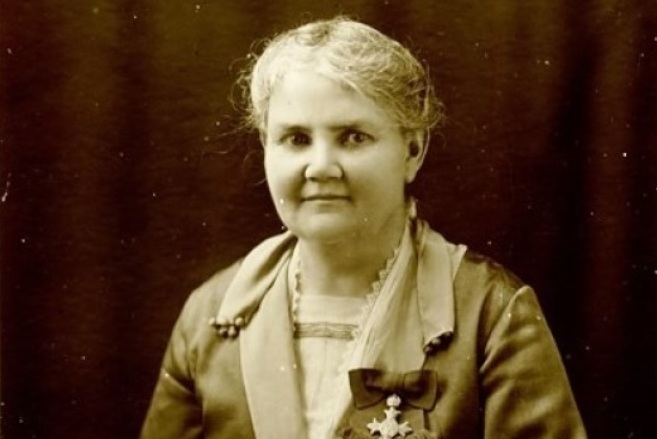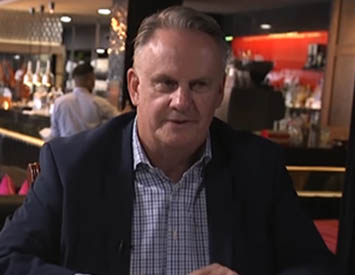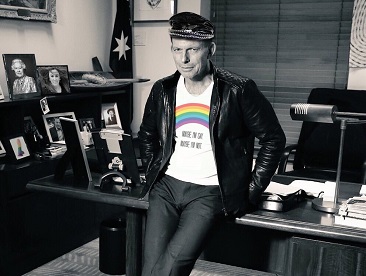All elections are important but with long standing Australian values concerning health, education and multiculturalism on the line, the next federal contest will be the most significant in decades, writes Dr Benjamin T. Jones.
THE ABBOTT government has delivered its second budget and the political commentariat is rife with speculation. Are we due for an early election? In stark contrast to the intensely unpopular first budget, the latest offering contains tax breaks for small business and few measures to address the now distant “budget emergency”. It has all the hallmarks of an election budget.
The latest Galaxy poll gave the Coalition a ten point jump to sit within striking distance of Labor at 48-52. Whether the election is called for late this year or at some point in 2016, one thing is clear: this will be the most important election in decades.
All federal elections are significant, but when a prime minister has a truly radical agenda in one or more policy areas, it is the second election that proves crucial. This has been a consistent trend in Australian politics. The second election either confirms or condemns a reformist platform making it vital that Australians are informed and vigilant when they vote.
While Whitlam’s iconic “It’s Time” election victory in 1972 is hailed as a watershed moment, in many ways it was his subsequent win in 1974 that cemented his legacy. Fraser was keen to wind back but would not abolish reforms in education, Indigenous policy, health and the arts that had been endorsed at two elections.
Similarly, the ALP planned to abandon or reduce the GST after Howard broke his “never ever” promise and introduced it at the 1998 election. His subsequent victory in 2001 confirmed its legitimacy and it is impossible now to imagine it being scrapped. The pattern is repeated with reforms under Chifley, Menzies, Hawke and others. The second election normalises a once radical idea and recalibrates the political compass.
Abbott is not a conservative in the strict sense. The influential right-wing think tank, the Institute for Public Affairs, urged Abbott to be radical in his reform agenda if he wanted to secure a long term legacy like Whitlam. It gave Abbott a list of 75 demands and upon winning the 2013 election many of them have been looked at. Abbott made clear his desire to undo at least three key planks from the Whitlam years. Many of his ideas were not publically announced – in fact many were denied on election eve – leading to claims his reforms lack democratic legitimacy. A second term will give him the mandate to make major changes.
Just some of 75 ideas steering LNP policies pic. Many already taking shape. ABC break up from http://t.co/tFSgJeybHb pic.twitter.com/IyObV7fNkO
— Stavros™ = Σταυρoς© (@dodona777) December 4, 2013
Whitlam believed firmly in the power of education to allow social mobility, especially for disadvantaged young people. His decision to make university education free did not hugely increase access but was highly symbolic and ideologically powerful. Despite the student fees introduced by Labor under Hawke, the deferral of payment system through HECS puts tertiary education within reach of most. Abbott’s plan to deregulate the sector will be the most radical change to the education norm since Whitlam. The plans are currently blocked by a hostile Senate but a second Abbott term will give the plan legitimacy it did not previously have.
A second key Whitlam reform was the concept of universal health and the introduction of Medibank which evolved into modern Medicare. Abbott’s plan to enforce a standard $7 co-payment to see a GP has been roundly condemned and is, for now, “dead, buried and cremated”. Nevertheless, the government has been bullish in its determination to reform a Medicare system it claims is “unsustainable”. Whether charges come from the government or from GPs in response to funding cuts, the principle of universal health care is on the line at the next election. Abbott tried to reduce the co-payment to $5, but it would make no difference if it was 5c. The change would mean health care is no longer a right of Australian citizens.
The Abbott government has displayed cautious determination to amend one final Whitlam legacy, the Racial Discrimination Act (RDA). The idea was first touted in the lead up to the 2013 election and was widely considered to be a response to the conviction of staunch Coalition supporter, Andrew Bolt, for hate speech. The debate reached a nadir when Attorney-General George Brandis declared in parliament that “people do have a right to be bigots”. Like the co-payment, the government has temporarily abandoned it plans to visit the issue but the intention is clear.
The Abbott government has sounded out three radical changes to long standing norms and all three have been initially rejected by both the Senate and the broader public. Universities are regulated so that the best minds can go to the best institutions based on ability. A U.S. style, free-market university sector is nothing short of radical. Any charge to see a doctor negates the principle of universal health. Once it is established as a revenue raiser, its fundamental purpose has changed.
The RDA is more than a law, it is a doctrine. It was passed just after the last vestiges of the White Australia Policy were abandoned. It symbolised that we are now a multicultural society and that racial discrimination and hate speech is unacceptable.
Abbott is profoundly driven by ideology. He is a culture warrior with a steadfast belief in neo-liberalism, class stratification, church and monarchy. He has shown extraordinary political courage in introducing so many radical changes to Australian norms in such a short period of time. Perhaps, like Whitlam, he expects his prime ministership will be short and is keen to leave a lasting impression on Australia’s cultural fabric. If Abbott loses the next election, his changes to education, health and multiculturalism will go with him. If he and his ideas are endorsed, the country will be inalterably changed.
David Donovan: "The people who put Abbott in power know he won't stay there long." @davrosz at #marchinmarch #AusPol pic.twitter.com/SPIwO7f503
— Kiera (@KieraGorden) March 22, 2014
It is unlikely the mainstream media will discuss the larger philosophical contest when the next election is announced. Imagining deep conversations to be beyond the intelligence or attention span of the average voter, sensationalist headlines and cheap photoshopped images will dominate the front pages. Having abandoned even the thin veneer of neutrality in 2013, Murdoch’s News Corp will no doubt actively campaign for the Coalition yet again. Regardless, a great ideological battle will be just beneath the surface and this is why the next election matter.
Australia is one of the few democracies in the world to have compulsory voting. Despite this display of civic engagement and political participation, there is a popular view that elections do not really matter and that the two-party system presents only the illusion of choice. It is true that the two majors have gradually assimilated in a search for the political centre but elections still do matter, especially with a reformist leader.
The next federal election will be the most important in a generation. Rather than magnifying the small policy changes, a national discussion is needed on the large ideological repercussions of a second Abbott term.
Dr Benjamin T. Jones is an Adjunct Fellow at the School of Humanities and Communication Arts at the University of Western Sydney. You can follow Dr Jones on Twitter@BenjaminTJones1.
John Graham's original cartoons can be ordered from the IA store.

This work is licensed under a Creative Commons Attribution-NonCommercial-NoDerivs 3.0 Australia License
Monthly Donation
Single Donation
For more in depth analysis of Australian politics, subscribe to IA from just $5.









